I’ve been keeping track of Paul Beatty’s books since 1996, Kobe Bryant’s rookie year in the NBA. The two men are linked for me because Beatty’s rookie novel The White Boy Shuffle (1996) became the centerpiece of a Los Angeles Lakers controversy when Lakers basketball coach Phil Jackson gave Beatty’s book to Bryant as part of his ritual book-gifting at the start of each season. Bryant, at the time a 17-year-old straight outta Italy and Philadelphia’s suburbs, was unsurprisingly insulted by the implications of Jackson’s gift—the title alone!— and promptly fed it to the garbage, a minor act of teenage self-determination which the sports media gleefully reported.
In fairness to Bryant, Beatty’s humor unhouses us all. Beatty is but one of many Black writers whose pens have unleashed gloomy laughter. Black, as in African-plus-hyphen, comedy began in the gallows, after our ancestors de-boarded slave ships and came ashore into an apocalypse which white folks called Paradise. Ain’t been lightweight out since. My own novel, The Confession of Copeland Cane, out the week of Juneteenth, finds humor in America’s gloomy absurdity, and owes much to the titles on this list, novels which take double Black humor to its deepest, wildest extent.
*
Machado de Assis (translated by Margaret Jull Costa and Robin Patterson), The Posthumous Memoirs of Bras Cubas
(Liveright)
Bras Cubas (1881) concerns the wanderings, philanderings and a delirium trip that involves riding a hippopotamus house cat to the origin of all time. The novel is lighter, more playful than Black American social comedies, though, as the critic Parul Seghal notes, the target of Bras Cubas’ subtle social critique is “[the] method of cruelty particular to . . . the white elite of Rio de Janeiro.”
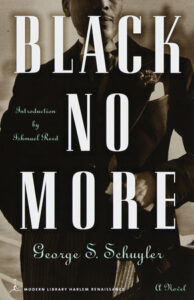
George Schuyler, Black No More
(Penguin Classics)
This satire is so scathing in its skewering of Harlem’s Black intelligentsia that it rarely makes the list of great Harlem Renaissance. The novel is premised upon a thought experiment: What if scientists invented a skin whitening procedure so effective that it would make Fair & Lovely look like a Black Power fist? Schuyler’s answer to his own question is that pre-Black-is-Beautiful Black America flocks to the formula, whitening themselves for purposes of social advancement in a deeply racist society. Schuyler maps the reactions to this phenomenon, sending up self-important civil rights leaders and barely literate Klansmen along the way.
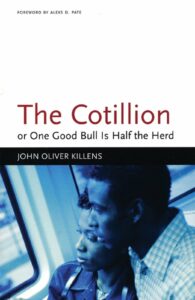
John Oliver Killens, The Cotillion; or, One Good Bull is Half the Herd
(Coffee House Press)
This Black Arts Movement masterpiece narrates the lead-up to the high Black society entrance of one Yoruba Lovejoy as seen by her revolutionary lover Ben Ali Lumumba. With Ben Ali as his surrogate, Killens relentlessly skewers the boulé. The novel also contains one of the greatest commentaries on writing ever written: “. . .[A]nd like I went to one of them downtown white workshops for a couple of months and got all screwed up with angles of narration, points of view, objectivity, universality, composition, author-intrusion . . . I said, to hell with all that! I’m the first, second and third person my own damn self.”
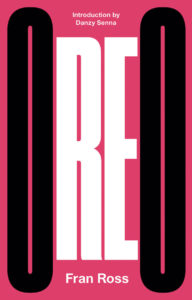
Fran Ross, Oreo
(New Directions)
“I’m going to find that fucker,” Oreo, the bi-racial protagonist of Ross’s only novel proclaims before setting off to find her deadbeat dad, a man who represents the absent Jewish half of her heritage. Oreo’s pastiche of Yiddish, blaxploitation, word games, inside jokes, recipes and equations doesn’t meet anyone halfway. After Oreo, Ross would write for the short-lived Richard Pryor Show, where she was met with Paul Mooney’s misogynist incredulity that Black female comedy writers actually existed, as well as the hungry ghost of Pryor’s drug addiction demons, which ultimately brought the show to a halt after only four episodes.
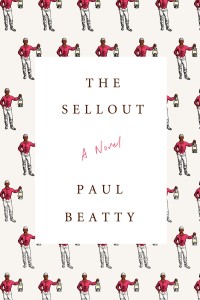
Paul Beatty, The Sellout
(Picador)
Paul Beatty: novelist, anthologist, satirist, genius, ex-poet. The teenage Negro demagogue Gunther Kaufmann of The White Boy Shuffle is one-upped in Beatty’s Booker Prize-winning The Sellout (2015) by an erstwhile urban planner who just doesn’t get “it,” from his father’s psych experiments, to the LAPD’s busy trigger fingers, racist ass Hollywood, and the upliftment of Dickens, California. “It,” our hero ultimately discovers, is an America and a state of racial affairs that is best understood in Latin script, within a reefer cloud, as he stands trial before the Supreme Court.
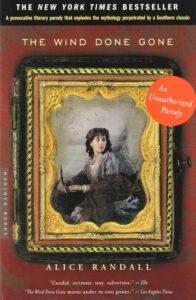
Alice Randall, The Wind Done Gone
(Mariner Books)
Randall’s debut novel The Wind Done Gone (2001) brands itself a parody of Margaret Mitchell’s novel Gone with the Wind. Told from the perspective of a mixed race slave, Cynara, from Scarlett O’Hara’s defunct plantation, The Wind Done Gone takes as its focus the perilous Black lives that Mitchell’s narrative so conveniently ignored. When Mitchell’s estate sued Randall for copyright infringement, an appellate court found that Randall’s novel met the criteria for the Fair Use exception in U.S. Copyright Law,“its main aim being to shatter Gone With the Wind‘s window on life in the antebellum and Civil War South.”
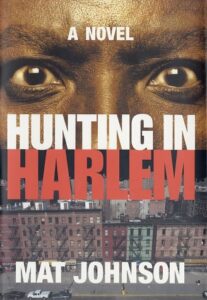
Mat Johnson, Hunting in Harlem
(Bloomsbury)
Only a global pandemic of extreme lethality could ponderous the gentrification of urban America, but even this phenomenon feels like something short-term rather than sustainable given the power of American capitalism. Mat Johnson’s great satire of Harlem gentrification, Hunting in Harlem (2003), takes wing in an alternate Harlem where Horizon Realty H.N.I.C. Cyrus Marks and his agents literally knock off housing project tenants (unexplained falls, C4 explosives, the works) in order to clear the way for a more lucrative urban future. This is gentrification by any means necessary, the 21st-century American dream, which, in the words of Tongo Eisen-Martin, requires more condemned Africans.
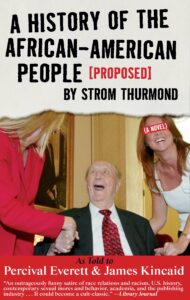
Percival Everett and James Kincaid, A History of the African American People by Strom Thurmond [Proposed]
(Akashic Books)
If you’ve seen the cover of A History of the African American People by Strom Thurmond (2004) by Percival Everett and James Kincaid, then you know that Percival Everett is one humorous motherfucker. (As for Kincaid, I’m not sure what his role is in the matter.) A novel premised upon straight-up racist South Carolina senator Strom Thurmond’s dictate that a history of African-America be ghostwritten in his name is about as absurd as absurd gets. It works because the novel is just as much a joke on American publishing as on the dead despot of palmetto land.

Percival Everett, Erasure
(Graywolf Press)
In Erasure (2011) an earnest Black Litterateur who can’t get his latest Literary novel published witnesses the success of a woman who visits Harlem for a week and takes it upon herself to publish the bottomlessly bad novel We’s Lives in Da Ghetto. In retaliation and aspiration, our hero pens My Pafology, spoofing street lit: When his novel attracts the attention he’s so long sought for his more high-minded work, the writer must confront himself at a crossroads.
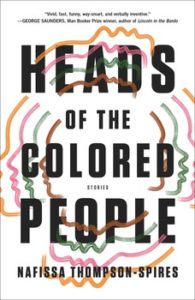
Nafissa Thompson-Spires, Heads of the Colored People
(37 Ink)
Thompson-Spires’s 2018 story collection is a mosaic of Black middle-class lives. The story “The Necessary Changes Have Been Made” centers the absurd life of a professor who has walked away from a tenure-track position at an elite research university to go slumming at the local HBCU, only to encounter an officemate whose love of lightweight exacerbates his neuroses. In the epistolary “Belles Lettres” two mothers with too many letters behind their names and not enough empathy for one another, let alone for the social pressures that their respective daughters face, square off in a series of comically viperous emails.
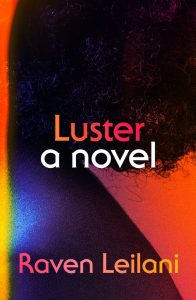
Raven Leilani, Luster
(Farrar, Straus and Giroux)
Fun fact: I, too, had a novel titled Luster set for publication in 2020, fall quarter to be exact. Then a few months before its publication here comes Raven Leilani with a more lustrous Luster and a spring publication date. When I sat down with my advance copy of Leilani’s Luster, I quickly came to realize that it is a very humorous story.
By the way, the miniature press that planned to publish my Luster incurred some pandemic-related financial losses in 2020 and the book’s publication was postponed, then discontinued, so, in the end, joke’s on me.
__________________________________

The Confession of Copeland Cane is available now from Unnamed Press.

